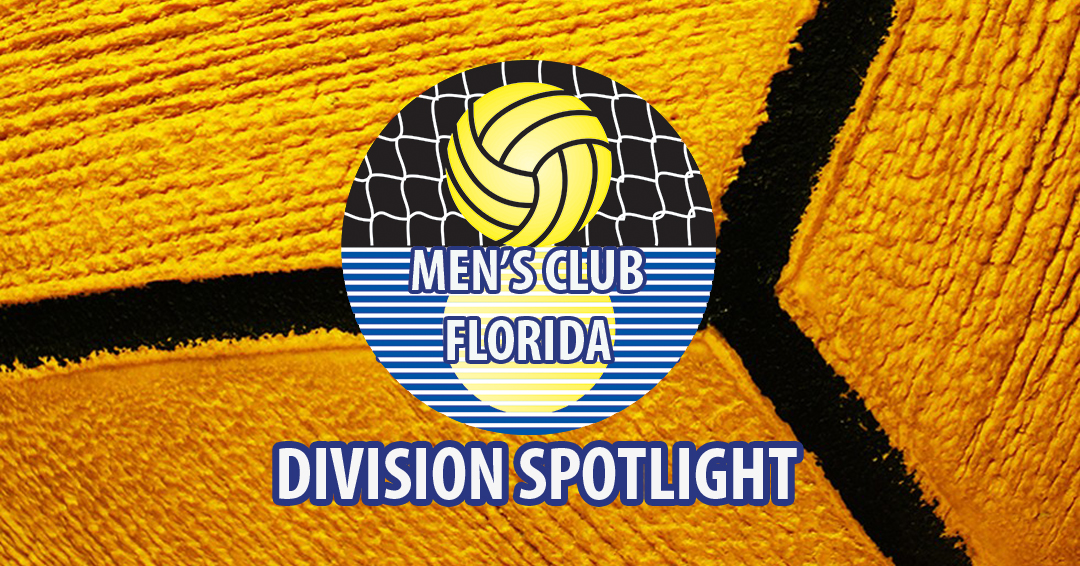BRIDGEPORT, Pa. — The Men’s Collegiate Club Division Spotlight series focuses on the Florida Division of Florida Atlantic University, Florida Gulf Coast University, Florida State University, the University of Central Florida “A”, the University of Central Florida “B”, the University of Florida “A”, the University of Florida “B” and the University of Miami.
HISTORY: Founded prior to the 2002 from the Southeast Division to provide a group for teams located exclusively in the State of Florida, the aptly named Florida Division has conducted competition in 15 seasons. From 2004-to-2006, the Florida Division merged back into the Southeast Division prior to reforming in 2007.
Florida has been the dominant team in the history of the division as the Gators hold seven titles (2002, 2003, 2008, 2011, 2017, 2018, 2019) – including the past three – in addition to six runner-up marks (2007, 2009, 2012, 2013, 2014, 2015). Florida State holds the second most championship game appearances with six as the Seminoles claimed the 2014, 2015 an 2016 crowns with second place finishes in 2003, 2011 and 2019.
Miami has also won three championships (2010, 2012, 2013), while former division member Florida International University went two-for-four on a quartet of seasons taking titles in 2007 and 2009 to go along with second place notices in 2008 and 2010.
In the history of the division, only one Florida Division team has competed in the National Collegiate Club Championship game as Florida International fell to the University of California-Los Angeles by a 10-8 final score. The game was noteworthy for another reason as the contest occurred within the Florida Division at Florida in Gainesville, Fla.
Florida Division Champion/Runner-Up
- 2002 – University of Florida / University of Central Florida
- 2003 – University of Florida / Florida State University
- 2004 – Rejoined Southeast Division – division reforms in 2007
- 2007 – Florida International University / University of Florida
- 2008 – University of Florida / Florida International University
- 2009 – Florida International University / University of Florida
- 2010 – University of Miami / Florida International University
- 2011 – University of Florida / Florida State University
- 2012 – University of Miami / University of Florida
- 2013 – University of Miami / University of Florida
- 2014 – Florida State University / University of Florida
- 2015 – Florida State University / University of Florida
- 2016 – Florida State University / University of Central Florida
- 2017 – University of Florida / University of Central Florida
- 2018 – University of Florida / Florida Atlantic University
- 2019 – University of Florida / Florida State University
National Collegiate Club Champion/Runner-Up
- 2009 – UCLA / Florida International University
THE TEAMS: Among a group of four divisions that feature teams from only one state (New York, Pacific Coast, Sierra Pacific), the membership of the Florida Division is exclusively from the “Sunshine State”.
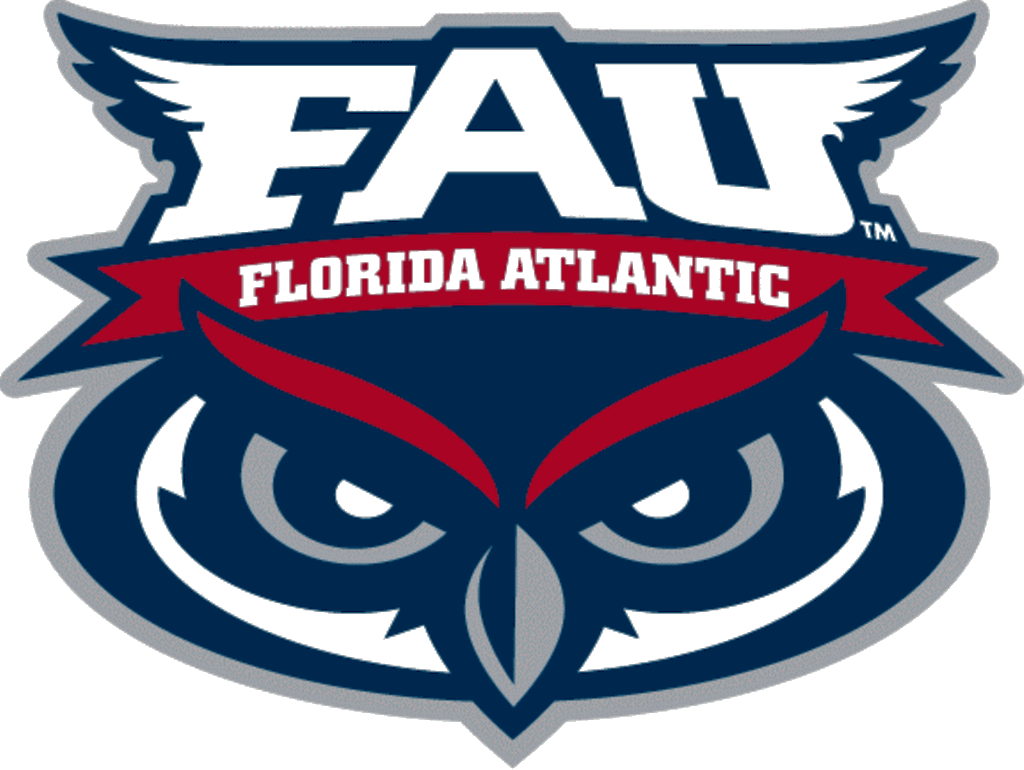 Florida Atlantic University
Florida Atlantic University
The 2018 Florida Division runner-up, the Owls of Florida Atlantic University are coming off a Third Place finish in the division during the 2019 season.
A public university with its main campus in Boca Raton, Fla., and satellite campuses in Dania Beach, Davie, Fort Lauderdale, Jupiter, and Fort Pierce, FAU belongs to the 12-campus State University System of Florida and serves South Florida. The university offers more than 170 undergraduate and graduate degree programs within its 10 colleges.
Florida Atlantic opened in 1964 as the first public university in southeast Florida, offering only upper-division and graduate level courses. Initial enrollment was only 867 students. Today, enrollment has grown to over 30,000 students representing 140 countries, 50 states and the District of Columbia.
The university has ten colleges which altogether offer over 180 different bachelor’s, master’s and doctoral degree programs: the Charles E. Schmidt College of Science, Charles E. Schmidt College of Medicine, Christine E. Lynn College of Nursing, College for Design and Social Inquiry, College of Business, College of Education, College of Engineering and Computer Science, Dorothy F. Schmidt College of Arts and Letters, Harriet L. Wilkes Honors College and the Graduate College.
The university offers two honors options: the Harriet L. Wilkes Honors College and a University Scholars Program. The Wilkes Honors College is located on the John D. MacArthur campus in Jupiter, Florida. It offers a liberal arts education in the platform of a public university, yet is comparable to a private liberal arts college. The Boca Raton campus houses the University Scholars Program, which offers special honors seminars, forums, courses, and advanced course substitution for freshmen.
The average class size at FAU for undergraduates is 33 students, and for graduate classes, 12 students. The top three undergraduate majors by enrollment are elementary education, accounting and management, respectively. The top three graduate majors by enrollment are business administration, educational leadership and accounting, respectively. The average age for first-year students is 18; however, the average age for all undergraduates is 24 and the average age for graduate students is 33. The average four-year graduation rate for first-time, non-transfer students is 14%, while the 6-year graduation rate is 39%.
FAU has long ranked as the most racially, ethnically and culturally diverse institution in Florida’s State University System as students come from all 50 states, every county in Florida, and more than 180 countries. Enrichment opportunities include internships, hands-on research, study abroad experiences, and 310 clubs and campus organizations.
For more information on the Florida Atlantic men’s collegiate club team, contact either Juan Olave (Jolave2017@fau.edu) or Martin Silva (Silvam2014@fau.edu).
- Facebook (@OwlsWaterPoloClub)
- Instagram (@faumenswaterpolo)
- Twitter (@FAUPolo)
- Website (fau.campuslabs.com/engage/organization/fauwaterpoloclub)
Florida Gulf Coast University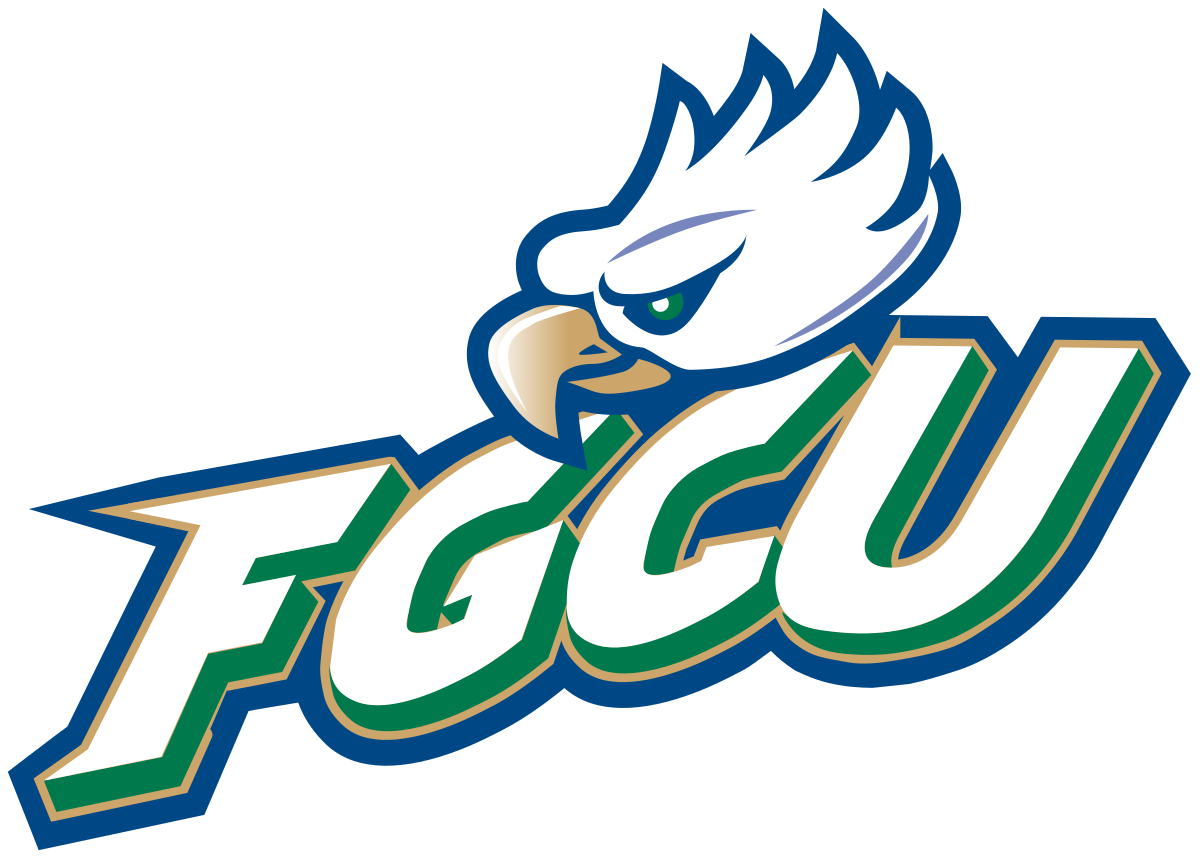
A public research university in Fort Myers, Florida, Florida Gulf Coast University belongs to the 12-member State University System of Florida as its second youngest member. The university was established on May 3, 1991, and is accredited to award 58 different types of bachelor’s, 25 different master’s, six doctoral degrees, and twelve graduate certificates.
The university’s academics are divided into six main colleges: U.A. Whitaker College of Engineering, Lutgert College of Business, Marieb College of Health & Human Services, College of Education, College of Arts and Sciences, and Honors College. The prominent schools and departments within the colleges include; Bower School of Music & the Arts, The Emergent Technologies Institute (ETI), School of Nursing, School of Resort & Hospitality Management, and School of Entrepreneurship.
The schools is environmentally friendly. Since its founding, 400 acres on the main campus have been set aside for environmental preservation. FGCU also has constructed a number of lakes on the campus that are home to large numbers of wildlife; the lakes also help promote the ecology of the area. Environmental sustainability is the principal goal expressed in the university charter. Seidler Hall, the new facility housing science laboratories and classrooms for the College of Arts and Sciences, achieved platinum certification, the highest level awarded by the U.S. Green Building Council’s Leadership in Energy and Environmental Design. The university’s 15-acre solar field supplies about 85 percent of the energy needed to operate Holmes, Lutgert and Seidler halls, reducing FGCU’s reliance on Florida Power & Light Co. by 18 percent. An ice thermal storage plant sends chilled water through an underground loop that cools campus buildings, saving more than $1.64 million over five years. The newest residence halls — Everglades, Biscayne, Palmetto, Osprey and Eagle — heat their water via rooftop solar panels.
For more information on the Florida Gulf Coast men’s collegiate club team, contact either Michael Nee (mgnee7947@eagle.fgcu.edu).
- Twitter (@FGCU_WP_Club)
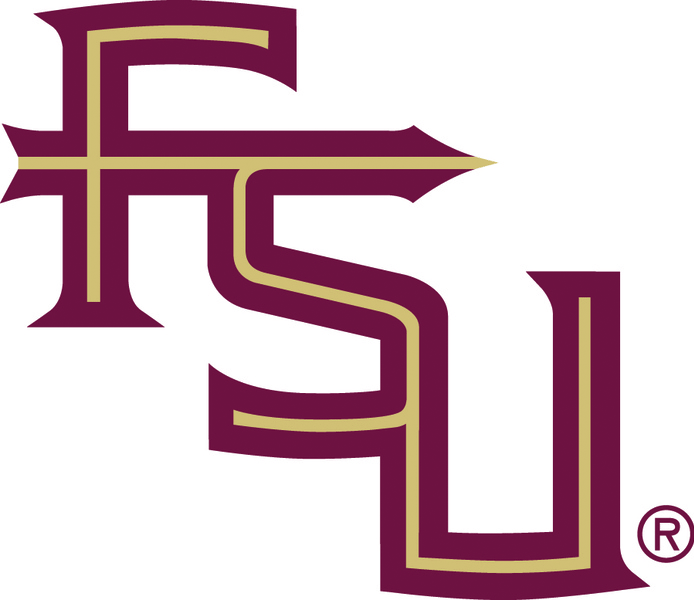 Florida State University
Florida State University
A three-time (2014, 2015, 2016) and runner-up (2003, 2011, 2019) in the Florida Division, the Seminoles of Florida State University fielded both “A” and “B” teams at the Florida Division Championship in 2019.
A public university in the Florida state capital of Tallahassee, Fla., FSU was founded in 1851 and is located on the oldest continuous site of higher education in the state of Florida. The school served as the host of the 2017 Men’s National Collegiate Club Championship – one of three times a current Florida Division team has hosted the event (2001, 2009 – University of Florida).
The university comprises 16 separate colleges and more than 110 centers, facilities, labs and institutes that offer more than 360 programs of study, including the Colleges of Applied Studies, Arts & Sciences, Business, Communication & Information, Criminology & Criminal Justice, Education, Engineering, Fine Arts, Human Sciences, Law, Medicine, Motion Picture Arts, Music, Nursing, Social Sciences & Public Policy, and Social Work, plus the Graduate School, Dedman School of Hospitality, and the Jim Moran School of Entrepreneurship. Florida State offers 104 baccalaureate degree programs, 112 master’s degree programs, an advanced master’s degree program, 12 specialist degree programs, 70 doctorate degree programs, and 3 professional degree programs. The most popular Colleges by enrollment are Arts and Sciences, Business, Social Sciences, Education and Human Science.
The Florida State University College of Medicine operates using diversified hospital and community-based clinical education medical training for medical students. Founded on the mission to provide care to medically under served populations, the Florida State University College of Medicine for patient-centered care. The students spend their first two years taking basic science courses on the FSU campus in Tallahassee and are then assigned to one of the regional medical school campuses for their third- and fourth-year clinical training. Rotations can be done at one of the six regional campuses in Daytona Beach, Fort Pierce, Orlando, Pensacola, Sarasota or stay in Tallahassee if they so choose.
Florida State students, numbering 41,551 in Fall 2019, come from more than 130 countries, and all 50 U.S. states. The ratio of women to men is 57:43, and 22.6 percent are graduate and professional students. Professional degree programs include Law, Medicine, Business Administration, Social Work, and Nursing.
In 2017, 7.1% of FSU students were international students. Of those, the most popular countries of origin were: China (20%), Panama (10.5%), India (6%), South Korea (5.4%), Colombia (5.1%) and Brazil (3.7%) with a total of 2,974 international students enrolled at Florida State.
Miami-Dade, Broward, Palm Beach, Hillsborough, and Leon County make up the largest Florida counties for in-state students. The Miami metropolitan area accounts for the largest geographic origin of students and makes up 23.41% of the student body. Students from Georgia, Virginia, New York, New Jersey, North Carolina, Texas, Pennsylvania, and Maryland make up the largest states for out-of-state students
For more information on the Florida State men’s collegiate club team, contact either Austin Bremer (floridastatewaterpolo@gmail.com, amb17e@my.fsu.edu) or the team’s general account (floridastatewaterpolo@gmail.com).
- Facebook (@MensWaterPoloClubAtFsu)
- Instagram (@fsumenswaterpolo)
- Twitter (@NolesWaterPolo)
- Website (campusrec.fsu.edu/sports/clubs/m-water-polo/)
University of Central Florida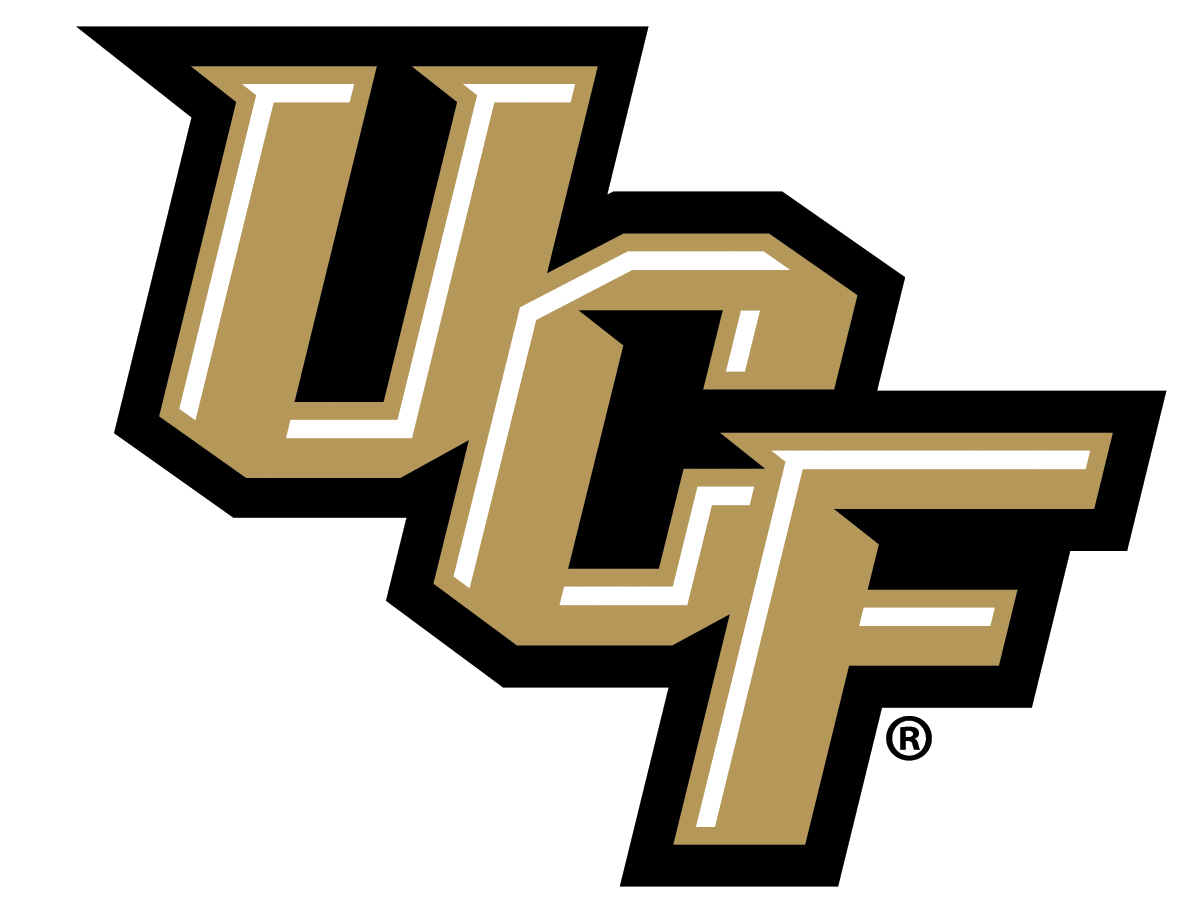
A three-time Florida Division runner-up (2002, 2016, 2017), the University of Central Florida (UCF) fielded both “A” and “B” teams during the 2019 season.
A public research university located in unincorporated Orange County, Fla., near Union Park. UCF has more students enrolled on campus than any other U.S. university with 69,525 during the Fall 2019 semester.
Founded in 1963 by the Florida Legislature, UCF opened in 1968 as Florida Technological University, with the mission of providing personnel to support the growing U.S. space program at the Kennedy Space Center and Cape Canaveral Air Force Station on Florida’s Space Coast. As the school’s academic scope expanded beyond engineering and technology, Florida Tech was renamed The University of Central Florida in 1978. Enrollment today includes students from 157 countries, all 50 states and Washington, D.C.
Most of the student population is on the university’s main campus, 13 miles east of downtown Orlando and 35 miles west of Cape Canaveral. The university offers more than 200 degrees through 13 colleges at 10 regional campuses in Central Florida, the Health Sciences Campus at Lake Nona, the Rosen College of Hospitality Management in south Orlando and the Center for Emerging Media in downtown Orlando.
The school’s existence is tied to President John F. Kennedy’s September 1962 speech, in which he described his goal of accomplishing a manned space flight to the moon by the end of the decade. Due to this, the space program grew in importance and scope in Central Florida because of its proximity to Cape Canaveral. This push for education in and around Cape Canaveral brought about the creation of UCF to achieve the limitless possibility of space exploration. This goal is displayed in the university logo which features Pegasus – the flying horse — which “symbolizes the university’s vision of limitless possibilities.”
Central Florida has a unique campus layout that has become a model for other universities, reminiscent of the plans by Walt Disney for his Experimental Prototype Community of Tomorrow, or EPCOT. The campus was designed to be a pedestrian oriented campus, with a series of concentric circles. The outermost circle is Gemini Blvd, which is also the main road for vehicular traffic on campus. Inside of Gemini, there is Apollo Circle, Mercury Circle, and finally Pegasus Circle as the innermost circle. All academic buildings are located inside of Gemini, with the circle divided up into pie-shaped sections for each college. Central Florida campus is one of only two in the nation with a concentric circle design, the other being the University of California-Irvine.
Located directly south of the main campus is Central Florida Research Park, which is the seventh largest research park in the nation and the largest in Florida, housing over 116 corporations. The park provides more than 10,000 jobs to over 500 students and thousands of alumni.
The university accepted approximately 36% of 32,634 applicants in 2018 with 11,720 acceptance letters being sent out. Over 96% of undergraduates receive financial aid, with an average financial aid package of $11,442 and about 70% of aid distributed in the forms of grants or scholarships. 90% of students receive scholarships through the Florida Bright Futures program. Forty percent of incoming freshman received Advanced Placement, International Baccalaureate, or an equivalent college credit upon entrance, while 30% of the freshman class received merit based scholarships.
For more information on the Central Florida men’s collegiate club team, contact either Christopher McGee (ucf.mens.water.polo@gmail.com) or coach Stephen Mullens (kmullens@att.net).
- Facebook (@MWPCatUCF)
- Twitter (@UCFMenWaterPolo)
- Website (ucf.campuslabs.com/engage/organization/water-polo-club-men-s)
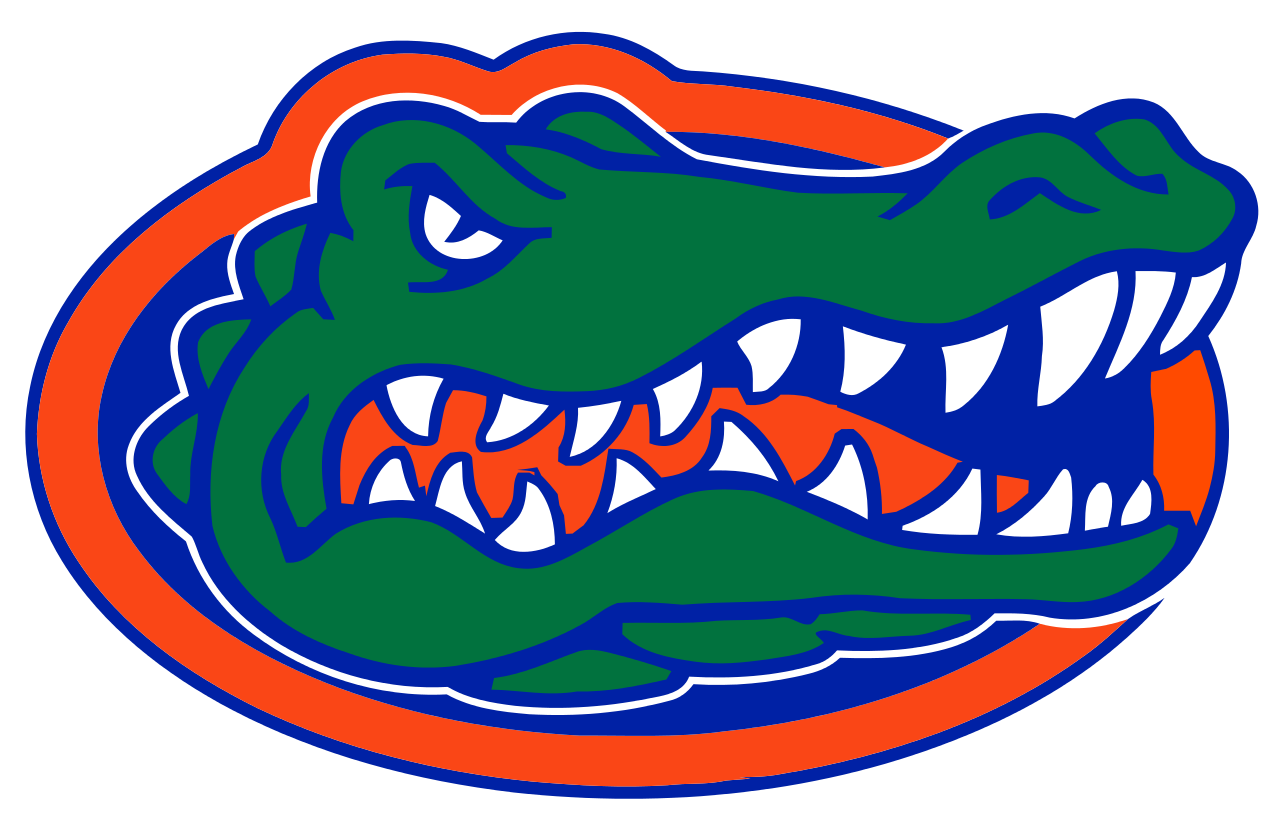 University of Florida
University of Florida
A seven-time champion (2002, 2003, 2008, 2011, 2017, 2018, 2019), six-time runner-up (2007, 2009, 2012, 2013, 2014, 2015) in the Florida Division, the Gators of the University of Florida are the most successful program in the history of the division.
A two-time Southeast Division champion (2000, 2001) and runner-up (2004, 2006) for a total of nine crowns and eight second place marks in the history of the program, the Gators have appeared in eight of the past eight Florida Division Championship title games (2011-to-2019).
The school holds a unique position as it hosted the Men’s National Collegiate Club Championship as a member of two divisions. The Gators hosted the event in 2001 as a member of the Southeast Division prior to repeating the feat in 2009 as a member of the Florida Division.
A public university located in Gainesville, Florida, which fielded both “A” and “B” teams during the 2019 men’s collegiate club season, the school traces its origins to 1853 and has operated continuously on its Gainesville campus since September 1906. For 2020, U.S. News & World Report ranked Florida as the seventh (tied) best public university in the United States.
It is the third largest Florida university by student population, and is the eighth largest single-campus university in the United States. The University of Florida is home to 16 academic colleges and more than 150 research centers and institutes. It offers multiple graduate professional programs—including business administration, engineering, law, dentistry, medicine, pharmacy and veterinary medicine—on one contiguous campus, and administers 123 master’s degree programs and 76 doctoral degree programs in eighty-seven schools and departments. The university’s seal is also the seal of the state of Florida, which is on the state flag.
In Fall 2018, the University of Florida had 56,079 students in total, 37,527 (67%) being undergraduate students, 11,763 (21%) being graduate students, 3,990 (7%) being professional students, 2,642 (5%) being unclassified, and 157 (0.3%) being correspondence students. Out of all 56,079 students, 3,587 were enrolled through UF Online. The ratio of women to men was 56:44 and 28 percent were graduate or professional students. Professional degree programs include architecture, dentistry, law, medicine, pharmacy and veterinary medicine. Home to the largest Jewish student body in the United States, approximately 18% of UF undergraduate and graduate students identify as Jewish compared to around 2% of the United States population.
According to the Annual Admissions Report conducted by UF in 2019, roughly 17% of the incoming freshman class was entering from outside of Florida. New York and New Jersey are the biggest feeder states outside of Florida.
The school’s mascot of the alligator was chosen in 1911 after a local vendor ordered and sold school pennants imprinted with an alligator emblem. The school colors, orange and blue, are a reference to the region’s heritage and an homage to the Scottish and Ulster-Scots Presbyterian heritage of the original founders of Gainesville and Alachua County, most of whom were settlers from North Carolina. The settlers ancestors were primarily Presbyterians of Scottish descent who had come to America from County Down and County Antrim in what has become Northern Ireland, while some had come directly from the Scottish Lowlands.
For more information on the Florida men’s collegiate club team, contact either Parker Strickman (Parker.strickman@ufl.edu), the team’s Executive Board (exec@floridawaterpolo.org) or head coach Dave Huelsman (david@ufl.edu).
- Facebook (@uf.waterpolo)
- Instagram (@ufmenswaterpolo)
- Website (www.floridawaterpolo.org)
University of Miami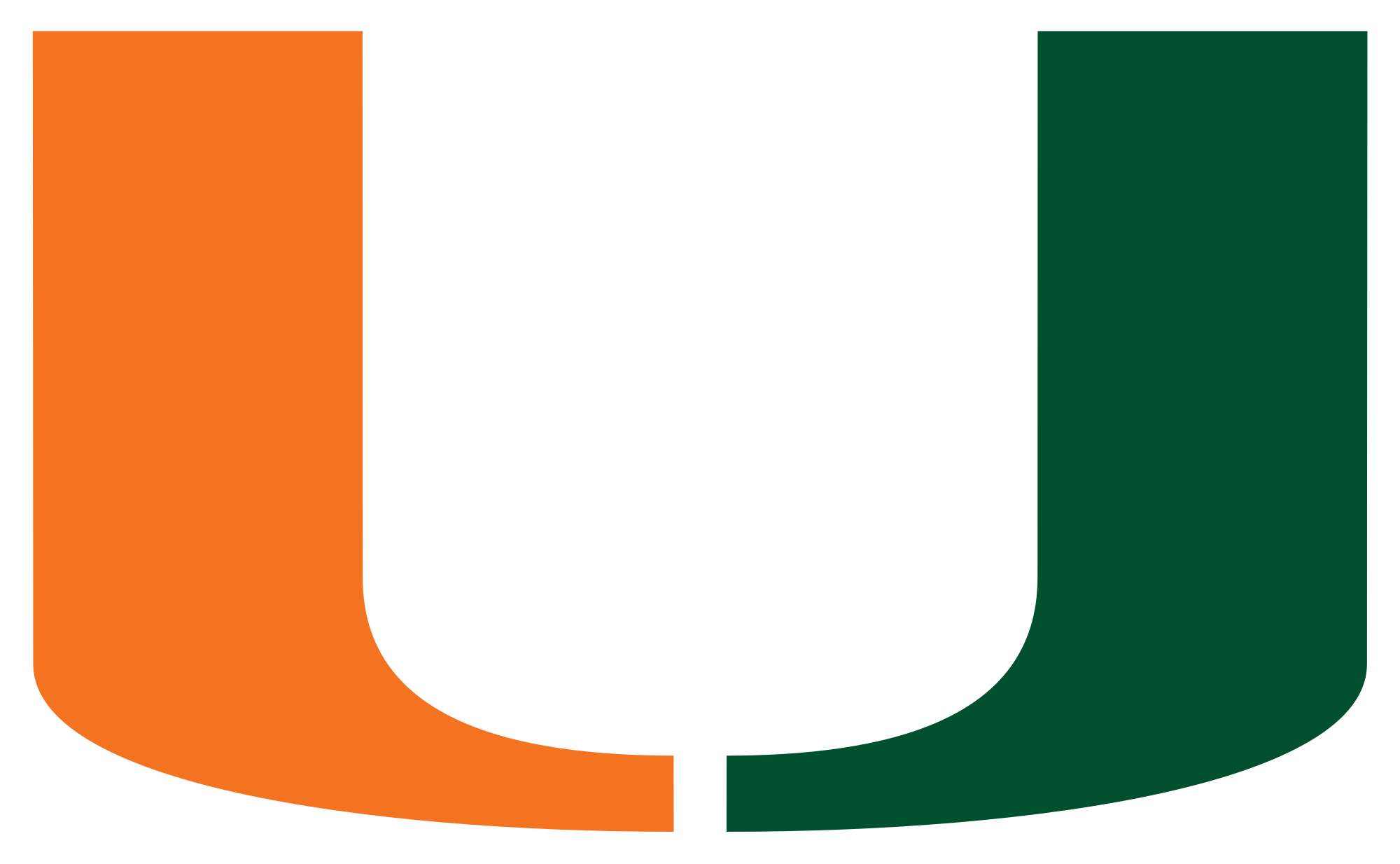
A three-time Florida Division Champion (2010, 2012, 2013), the University of Miami men’s club team is open to both men and women to compete during the season.
A private research university in Coral Gables, Florida, Miami enrolls 17,811 students in 12 separate colleges/schools, including the Leonard M. Miller School of Medicine in Miami’s Health District, a law school on the main campus, and the Rosenstiel School of Marine and Atmospheric Science focused on the study of oceanography and atmospheric sciences on Virginia Key, with research facilities at the Richmond Facility in southern Miami-Dade County.
The university offers 132 undergraduate, 148 master’s, and 67 doctoral degree programs, of which 63 are research/scholarship and four professional areas of study. Over the years, the university’s students have represented all 50 states and close to 150 foreign countries.
In 2019, undergraduates were composed of: 23 percent from the Greater Miami area, 10 percent from other parts of Florida, 51 percent from other U.S. states, and 15 percent were international students. Graduate students were composed of: 42 percent from the Greater Miami area, 11 percent from other parts of Florida, 28 percent from other U.S. states, and 19 percent were international students.
Miami received 38,919 undergraduate applications for Fall 2019 and reported an acceptance rate of 27% as the school ranks as the most selective university in the state of Florida.
For more information on the Miami coed collegiate club team, contact either Heidi Zirnkilton (hjz6@miami.edu) or Kyle Arbide (kxa436@miami.edu).

